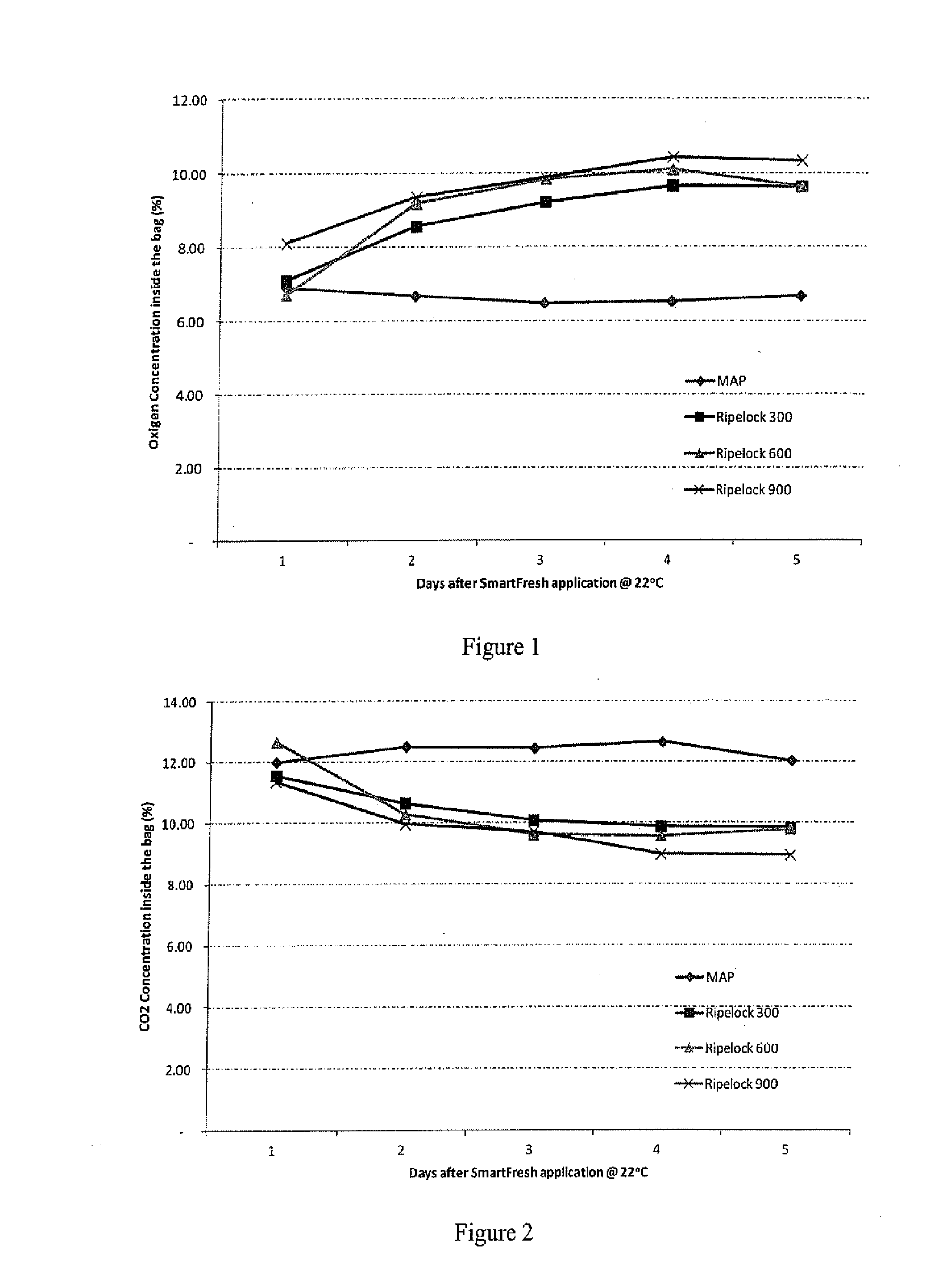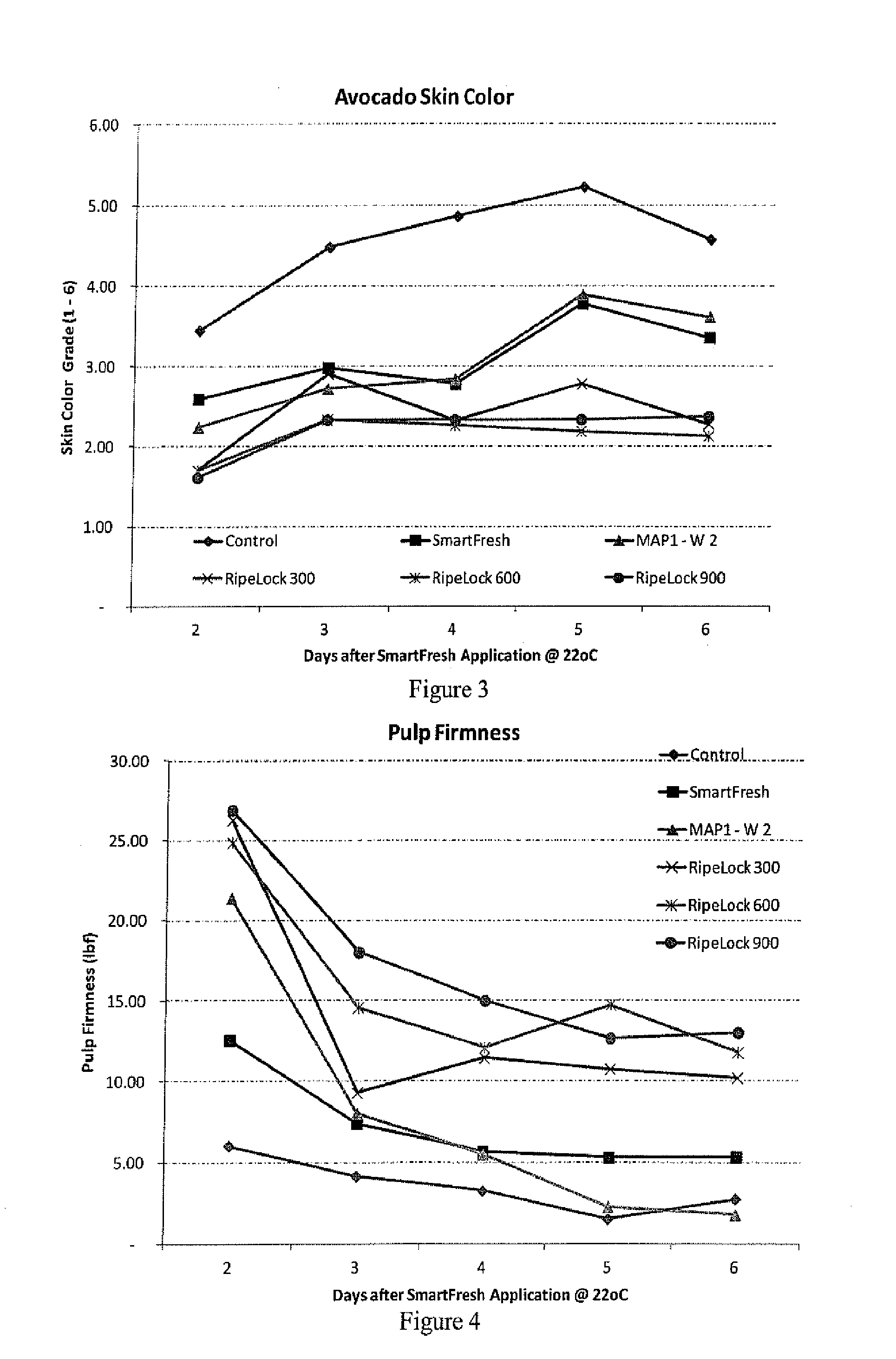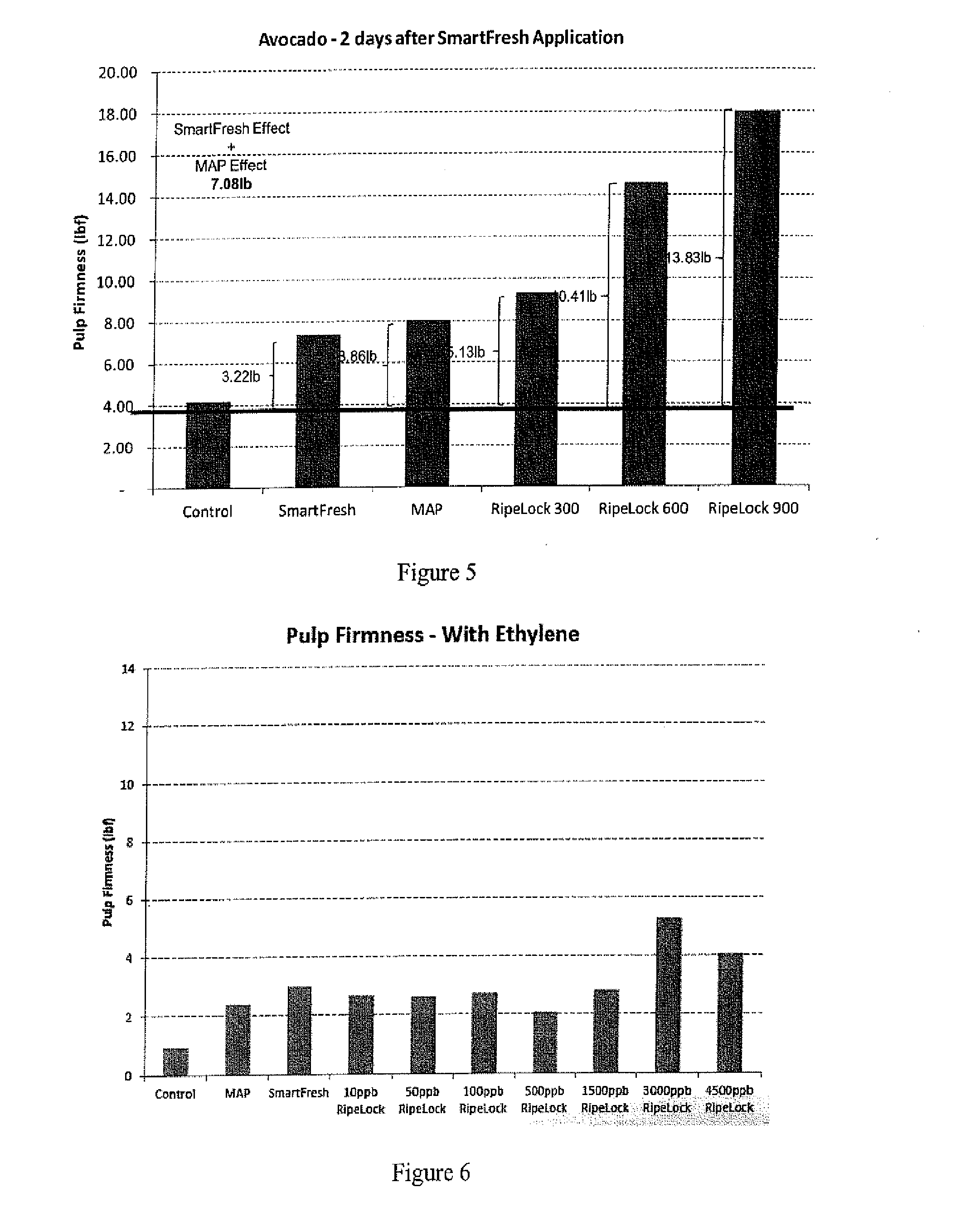Methods of handling avocados and system
a technology of avocados and systems, applied in milk treatment, container preventing decay, transportation and packaging, etc., can solve the problems of large and undesirable price reduction, undesired shortening, and inability of venders to sell avocados, etc., to achieve the effect of prolonging shelf life and/or storag
- Summary
- Abstract
- Description
- Claims
- Application Information
AI Technical Summary
Benefits of technology
Problems solved by technology
Method used
Image
Examples
example 1
Avocados from California, USA
[0124]Avocados were harvested in Oxnard, Calif., USA and packed in cardboard boxes and shipped to Sacramento, Calif., USA. After 2 days of transportation part of the avocados were packed in MAP bags. The appropriate weight of avocados was placed in each bag after harvest and shipment. Bags were placed in RPC (Recycle Plastic Container) carrying devices. Avocados then were stored at room temperature (22° C.).
[0125]The Test Protocol that was used was as follows. 60 MAP bags were packed. Each bag held approximately 1.7 kg (3.8 lb) of avocados. Three such bags were packed in each RPC. Total weight of avocados in MAP bags was approximately 102 kg. Approximately 51 kg of avocados were placed into RPC identical to those used for the MAP bags. The MAP-packaged avocados were packaged as follows: Nine fruits, approximately 1.7 kg (3.8 lb) were carefully placed into MAP bags, and the bags were sealed by twisting the open side of the bag, folding down the twisted en...
example 2
Avocados from Mexico—Treatment at 71 N (16 lbf)
[0135]Avocados were harvested in Mexico and shipped to Pennsylvania, USA. 48 fruits were tested. When the fruits reached pulp firmness of 71 N (16 lbf), half of the fruits were exposed to atmosphere having 1000 ppb of MCP at 21.1° C. for 12 hours and half were not. Immediately after treatment, fruits were placed in MAP bags. The number of fruits per bag was either 1, 2, 3, 4, or 10. Two MCP-treated fruits were left out of any MAP, and two fruits not exposed to MCP were also left out of any MAP. All fruits were then stored at 21° C. (70° F.). On the eighth day after exposure to atmosphere containing MCP, fruits were tested with the following results. The results shown are the averages for all the fruits tested in each category.
Pulp Firmness (Newtons (lbf)) on Day 8BagMCPFirmnessDifference(1)none012.9 (2.9)0none1000 ppb16.8 (3.8)3.9 (0.9)MAP016.7 (3.8)3.8 (0.9)MAP1000 ppb25.5 (5.7)12.6 (2.8) Note(1)Difference in firmness between the sampl...
example 3
Avocados from Mexico—Treatment at 98 N (22 lbf)
[0136]Avocados were harvested and shipped as in Example 2. Treatment was performed when pulp firmness reached 98 N (22 lbf). 50 fruits were tested. Otherwise the treatment and handling was the same as in Example 2. Results (average of all fruits tested in each category) were as follows:
Pulp Firmness (Newtons (lbf)) on Day 8BagMCPFirmnessDifference(1)none012.02 (2.7)0none1000 ppb16.91 (3.8)4.9 (1)MAP012.02 (2.7) 0 (0)MAP1000 ppb37.83 (8.5)25.81 (5.8)
Skin Color on Day 8BagMCPColor RatingDifference(2)none050none1000 ppb50MAP04.60.4MAP1000 ppb4.20.2
[0137]Note (1): Difference in firmness between the sample shown and the sample with no MCP and no MAP (Newtons (lbf)). Note (2): Difference in Color Rating between the sample shown and the sample with no MCP and no MAP (Newtons). The combination of MAP with MCP appears to be synergistic for both skin color and pulp firmness.
PUM
 Login to View More
Login to View More Abstract
Description
Claims
Application Information
 Login to View More
Login to View More - R&D
- Intellectual Property
- Life Sciences
- Materials
- Tech Scout
- Unparalleled Data Quality
- Higher Quality Content
- 60% Fewer Hallucinations
Browse by: Latest US Patents, China's latest patents, Technical Efficacy Thesaurus, Application Domain, Technology Topic, Popular Technical Reports.
© 2025 PatSnap. All rights reserved.Legal|Privacy policy|Modern Slavery Act Transparency Statement|Sitemap|About US| Contact US: help@patsnap.com



